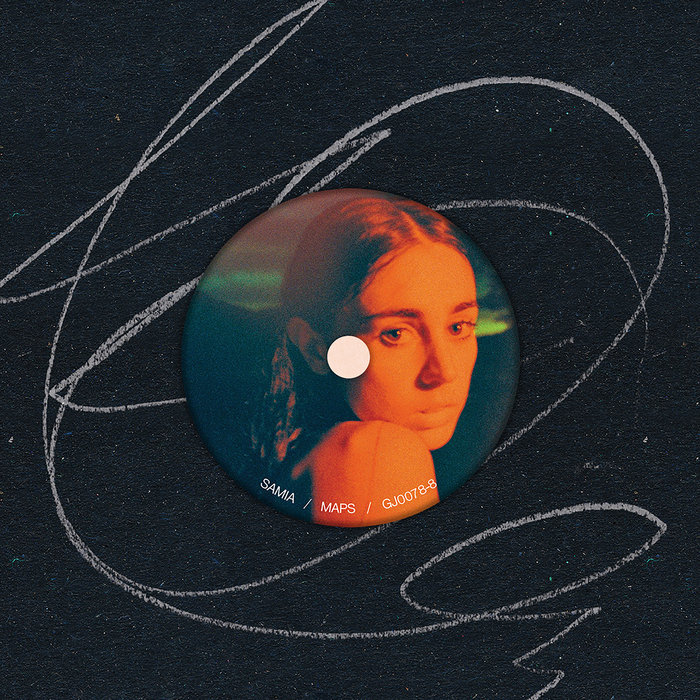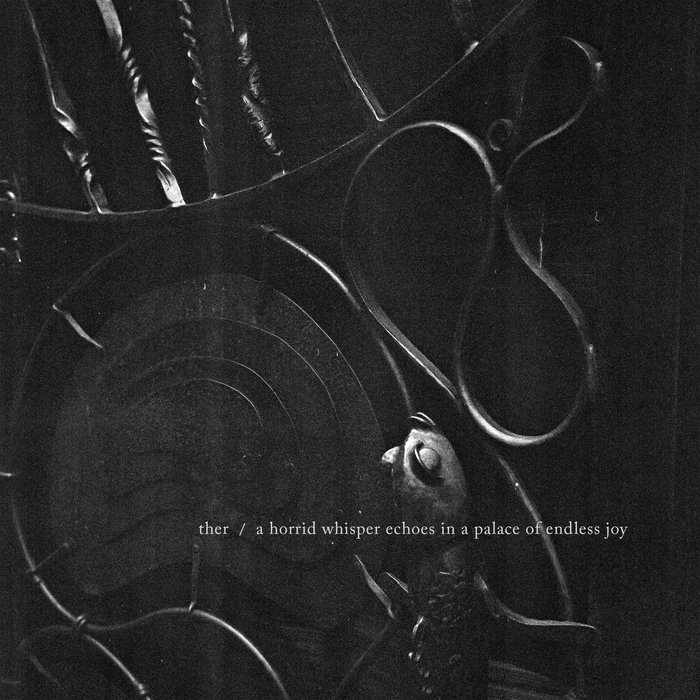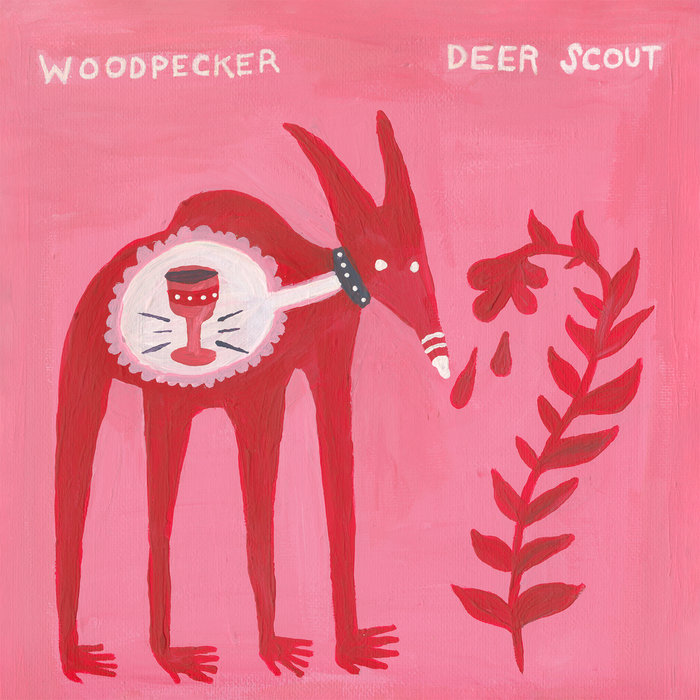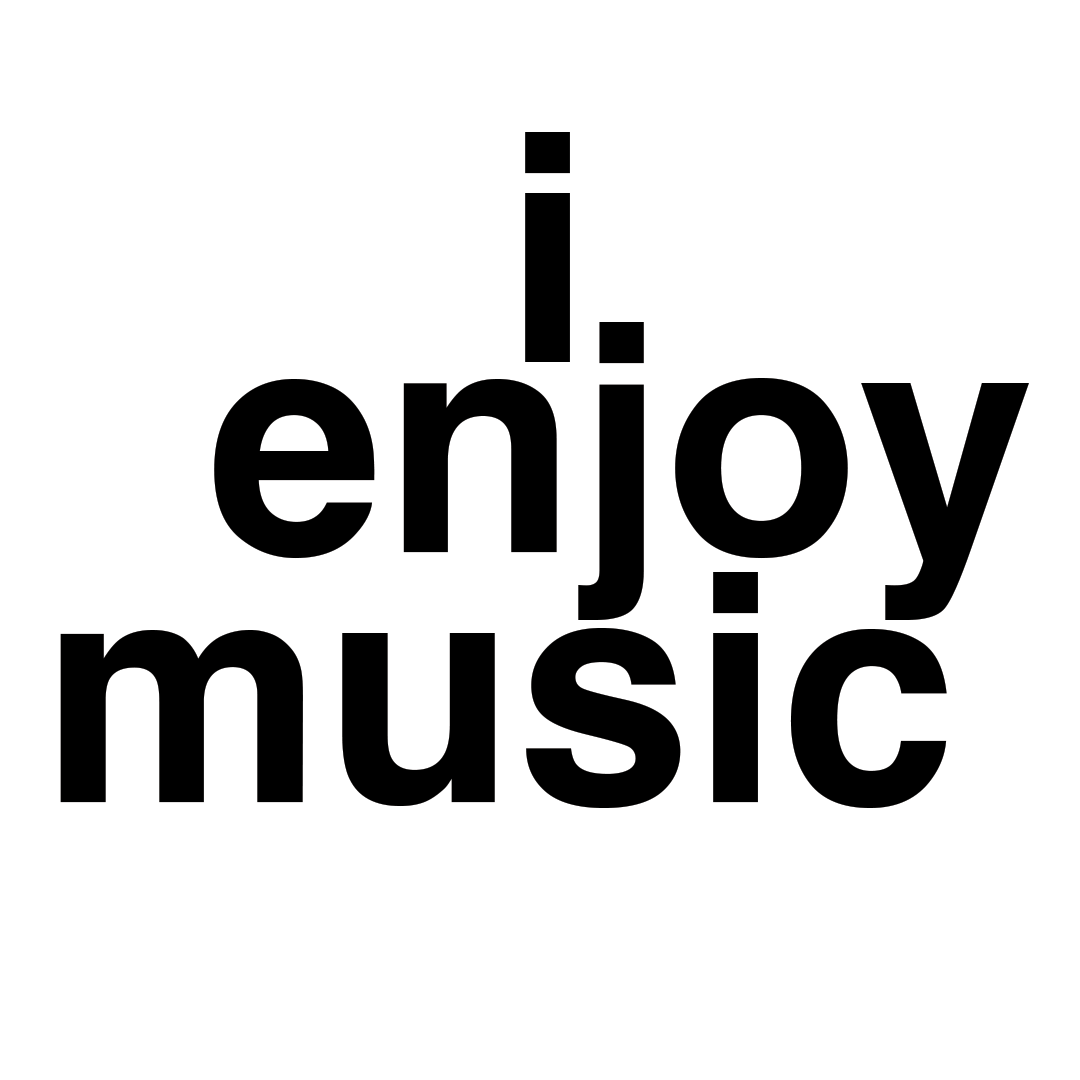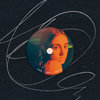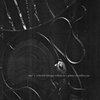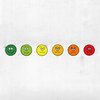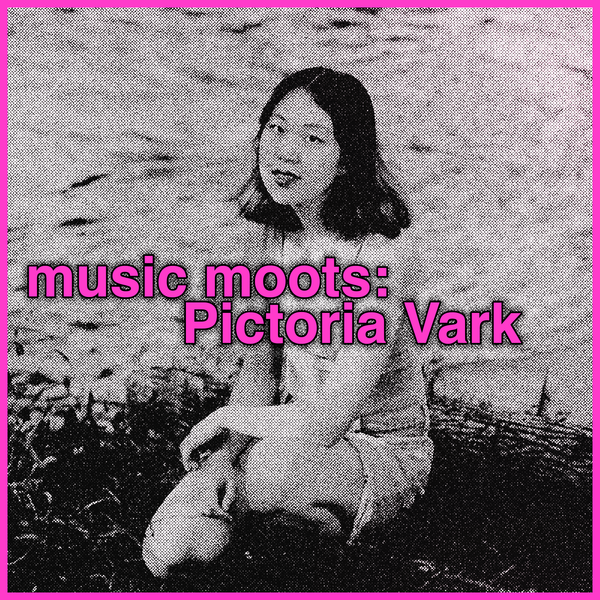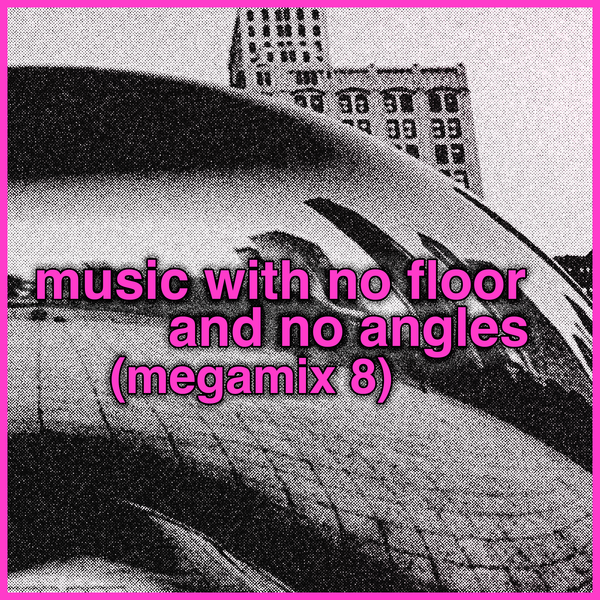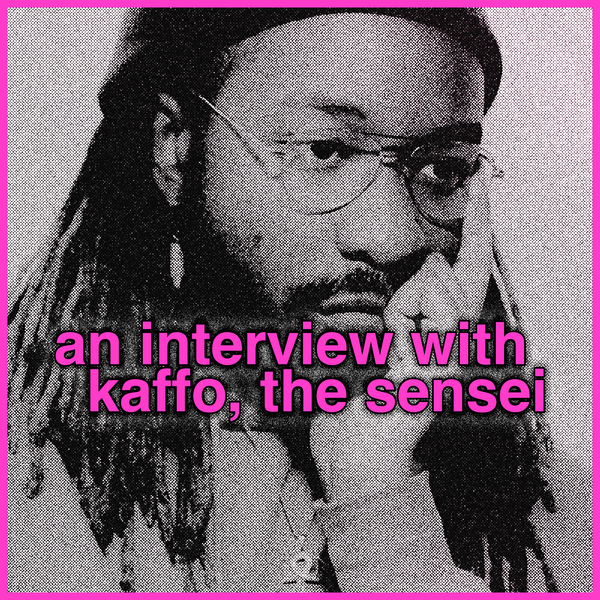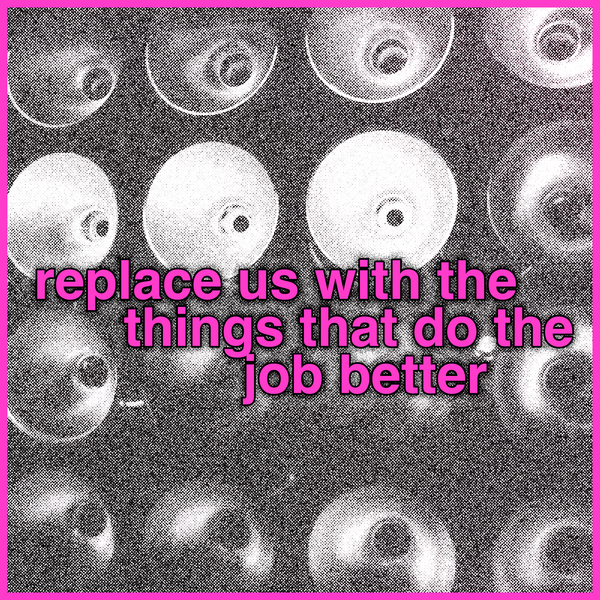an interview with audio engineer Heather Jones (So Big Auditory)
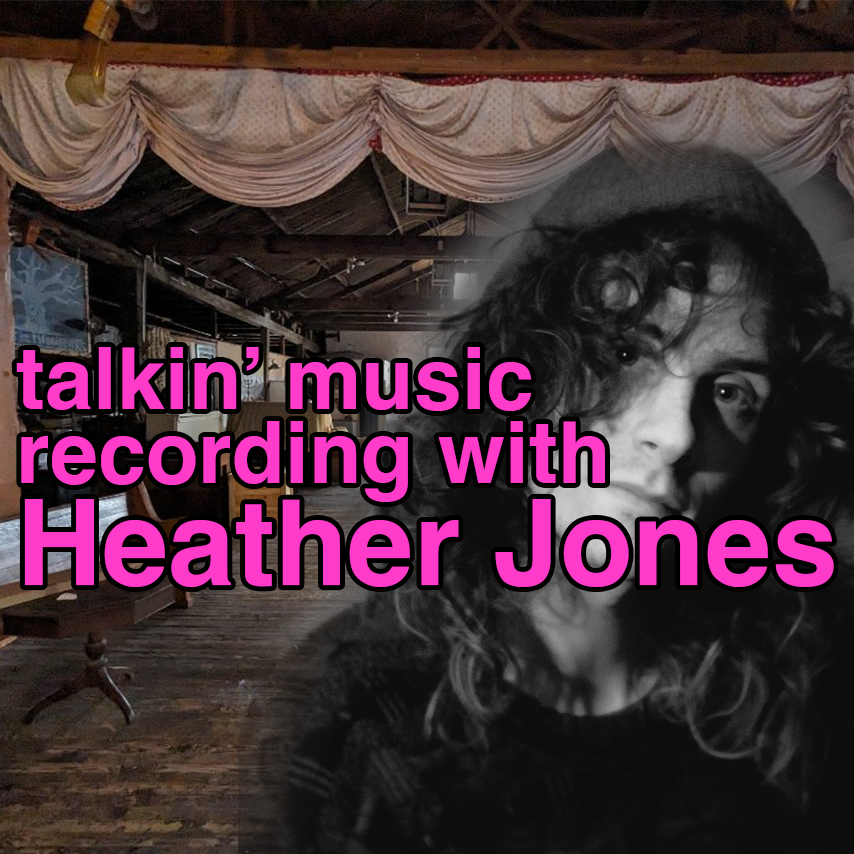
The music you dig doesn't just get transferred from a musician's brain to yrs. They gotta record it first!! I've always been fascinated with how music actually gets made in the studio, and after coming across a tweet from Heather Jones (who founded Philadelphia's So Big Auditory) about their recording studio, I really wanted to hear their perspective on recording — specifically recording high-quality tunes for bands on a budget in the year 2023:
you can record here for less than 200/day. this room has launched friendships, tours, record deals, bands. you will have an amazing time. booking recording for september. (sorry to confidencepost, I just think I can make your band sound really good) pic.twitter.com/VUJvelJrhV
— (hea)ther (@ther_ther_ther) June 15, 2023
Heather focuses on mastering these days (for acts like Samia, Swim Camp, and Twin Princess), but also produces and engineers records, while ALSO making music in the alt-folk band Ther. I emailed her some questions about her work at So Big Auditory and...ah well you just need to keep reading because there are some really interesting thoughts about money, creative vibes, digital v. analog recording, the 'tradition' of music recording, what actually goes into the process of mastering a song...honestly if you're a band and you've never recorded in a studio before, or if you have and had a weird or unsatisfactory experience, this is definitely worth a read because it was certainly eye-opening for me!
First, would love to hear a little bit about your background as a musician, and then what brought you toward engineering / producing / mastering the music of others?
Well, my background is, like so many others, in performing– I started in choir at like eight or nine. And eventually band, all the way through high school. When I left to study music in college, I initially wanted to do jazz and Composition. I quickly realized that I wasn't cut out for it, though. It wasn't how I wanted to be devoting my life to music. And once I discovered self-recording in college, it was really over.
I realized that recording — and that total act of creation — felt like a more exciting, more exploratory way of making music. And figured that it was probably an easier way to have a career in music, rather than as an artist or a songwriter. I was never that good a player or performer as a kid. I always relied on my creativity to make up for it, but it felt kind of silly to think that my own work could provide me with a full career by itself. Completely unrealistic. Performing, whether it was my music or someone else’s was never really a viable path.
So, recording made sense because I've never been good or skilled as much else besides music. I knew that if I wanted to make a living as an adult, it was probably gonna have to be in music, and if I was going to do that, I would probably have more success as an engineer than something else, because there would simply be more work to do. And so I guess that's where it came from, and I set my mind to getting as good at it as I possibly could. It feels kind of weird to think about it mostly as a career decision, but for most of my life I’ve wanted to devote my time to music, and this just seemed like my best bet — and frankly I don’t have many other skills. Luckily, as I started to work with other people, I found that it was a deeply fulfilling process. Especially since I got to work on a bunch of music that I would never make myself, I got to not just explore my own work at any given time, but generally explore music in a broader way than I would be able to just by following my own writing.
And then moving to Philly! There's a lot of great music here, obviously. So it was an uphill battle building cred in the community, not at all due to lack of support, but just because of how many stupidly talented and insightful people there are making music in this city. But now I can kind of leverage my experience, and my track record, too. And being here now, I get to work with some of the most talented and visionary people — it’s simply wild.
From the photos, the studio looks amazing. What, to you, makes a good physical space for recording music?
That's a really good question! It should be comfortable. There's a crucial line between being comfortable and lethargic. I think a space needs to be somewhere where you can rest and be physically comfortable in your body, so that you can have a clear conversation with your mind and your ideas.
There's a lot of ways to do it, but what I want is a space that’s inviting. Comfortable, easy to navigate. And with as much within reach as possible. It's just as easy for me to grab a keyboard as it is to grab a microphone. Or for a client to pick up a guitar and start playing along right away. All of it being in the same room provides a lot of potential solutions to a problem or an executing idea that are right there.
And to be a bit more particular, I've set up the space to have good accurate playback. So, when I’m working in that room and getting sounds, I know that the sound that I'm getting is going to translate elsewhere. This means I can be confident in my ideas, and know that I want this guitar to sound big as fuck, or really aggressive, or want the chord to be voiced this way, or the sub-bass line should sound like this. This goes for the client too! I know they’ll be able to take roughs home with them, and the ideas that they threw at their song all day are still singing in their kitchen on their bluetooth speaker, or in their earbuds. It keeps the collaborative relationship curious and excited.
Music recording is kind of weirdly obsessed with tradition, as a field. I guess it's weird because even the early tech isn't that old, and we don't really have that much historical tradition to look back, honestly. Regardless, people get caught up in the narrow tradition and expectations we have to draw from. It can make artists worried about making the wrong decision or doing something that “isn't right”. It’s easy to make decisions based on fear or insecurity in recording — or in general I guess. So I think it's nice to have a space where you can feel confident in your ideas and your vision. Confidence is where an artist can tap so much agency into where the work goes, and where they can find deeper depths in their own ideas. They can hear an idea back and be like, “No, that's not right — I know that's not right”. And they can point at something else like, “No, we need to do it this way” — and that is really, really important. Crucial, honestly. Those are my priorities as I continue to build the space out: how do I create a space that’s comfortable and exciting for an artist, easy to navigate, somewhere that builds and rewards confidence?
Will you explain a little more what your digital-analog workflow entails?
Honestly my workflow is a lot more digital than it used to be. I do have some analog equipment that I really like, because it gets certain types of sounds that the digital doesn't get. I have certain preamps that you might call slower. Imagine it as an amplifier for a microphone that has, like, a slower frame rate. You can take a bright mic and it can make it not overly stimulating or harsh because it kind of slows down the signal and smooths it out. It's a product of something called "slew rate" which I don't totally understand. I’m not an electronics person.
I also have some analog recording decks. I have a reel-to-reel tape machine I like, a cassette deck too. I have some analog compressors and EQs that I like a lot, but mostly these days I'm going digital with my processing because, frankly: it doesn't sound the same as analog but it does sound just as good. So I try to take advantage of digital being inexpensive, replicable. It requires less electricity, it doesn't require servicing. And it's just more affordable!
You know, I could have the type of studio where I invest in a lot of analog gear, but then I would have to raise my rates to pay for it, and bands would have to pay more and then the stuff would be breaking all the time, and so I'd be paying for it to get serviced. It's easier to just be like, I know this digital stuff works, I know that it sounds good. I know how to make it sound the way that I want it to, and it is a lot cheaper and so I can keep my rates lower and honestly? Work faster. If I keep things cheap it allows clients to work. Working faster means clients get more done. There's less time lost to troubleshooting too.
But, you know, some of my biggest records have had the tape machine on them at some point and there's an undeniable magic in working outside of a computer — there’s nothing like it. So there’s that. Everything has its place.
In that tweet I came across, you emphasized the reasonable price point of So Big Auditory — why is it important to you to have accessible pricing for musicians?
So obviously things should be affordable. Open and shut case. But I've seen a lot of musicians — a lot of musicians — have not been able to make the records that they've wanted to make because they didn't have the money, or they hired someone really expensive and they could only have a little bit of time with them, they were afraid of asking for what they needed, and for reasons like that, high price points can cause people with not a lot of money to lose control of their music.
Not to throw shade at engineers for charging what they think they should, but artists should be working in conditions that they can afford. Especially as we have an ongoing cost of living crisis, as the economy gets worse and people have less and less money, there needs to be places where people can record music that does a decent job. And, frankly, it's something that I don't see a lot of people doing. We are up to our ears in bespoke audio services, and I've seen, by talking to artists, the consequences of that and how that hurts the integrity of music and the process of recording it. Every scene needs people who just affordably record local bands. Just record them, basic professional tracking, and make them sound good. Not really get distracted by production and try to be as hands off as they can. It's an important business model that every scene needs: to deliver a good quality recording at a low cost in a way that feels fair to everyone involved.
It has definitely been a hard pursuit at times. It's been challenging to do work affordably, through COVID especially, and now as COVID continues while the economy crumbles. As I’m answering this I’m in the middle of the worst drought in work I’ve had since lockdown. But it's existentially important to have affordable recording. People need to be able to record music and no one should ever be priced out of the process at all, in any way, ever. I am always really happy to get inquiries from people without financial support, and I take a lot of pride in being able to deliver something to someone on a budget, feel good about the work, pay myself a living wage, knowing the client is happy and they didn't pay an arm and a leg for it. That feels good — it’s how I wish the entire economy worked. Everyone I know thinks I’m running my business wrong, but it is getting more sustainable all the time, and I’m really fucking stubborn.
Finally, there's the most insidious part of the money in recording — a sunk cost fallacy. I think that when people spend a lot of money on a recording, even if they're not thrilled with it, they'll try to convince themselves that it was the thing they wanted, because they put so much money into it. But when I'm only billing, you know, as low as $20 an hour for recording, it's easy for a client to come back and be like, “I only like a couple of things that we did yesterday” and then we can be like “Cool, so we didn't get it right? Let's take it again." We can easily plot out more time and try again, and try something different. Because people don't feel this need of, like, “I've got to get all this done so so fast”.
This is what I mean when I say affordability helps the process: it gives people freedom to explore and discover things about their music and themselves.
What do you like about mastering music? And what's going through your mind as you take on a mastering project?
As I begin a mastering project, I’m trying to put myself in the mindset of the client: the artist, the producer, the mixer. I do my best work when I'm able to get myself in the head of the people who made the record and hear the music how they hear it, then simply make it sound more like what I think it sounds like in their heads when they hear it.
What I mean by that is: when you listen to a recording, there's what you physically hear, and what you imagine. It is kind of like the reflection in your brain — a mirror of what it hears. You hear the thing, and then your brain interprets it into a thing that you understand and remember. It's not the sound itself. It's that recreation or whatever. Like any memory. Producing music is the same thing, the process of getting that inner imagined thing to be created by how the speaker moves. Thelonious Monk once said “Some music is just imagined”. Of course, he was talking about playing bebop — not mastering — but I think about it all the time.
I simply try to give the client something that's closer to what I imagine their brain's recreation is, so that it's more vivid and more striking. Those exercises in perspective-taking are really fun. It's an ego-killing exercise. Very much a service: figuring out the vision, and using tools and craft and creativity to execute it. That's exciting work. I also really like mastering because it's a high-volume line of work, so it means I get to work on a lot of records and explore a lot of material. I really love being able to do hundreds of songs a year. Just more music to learn, and discover, and glean things from.
Thank you Heather!! Below are some So Big Auditory projects from the last couple of years that you should listen to:
